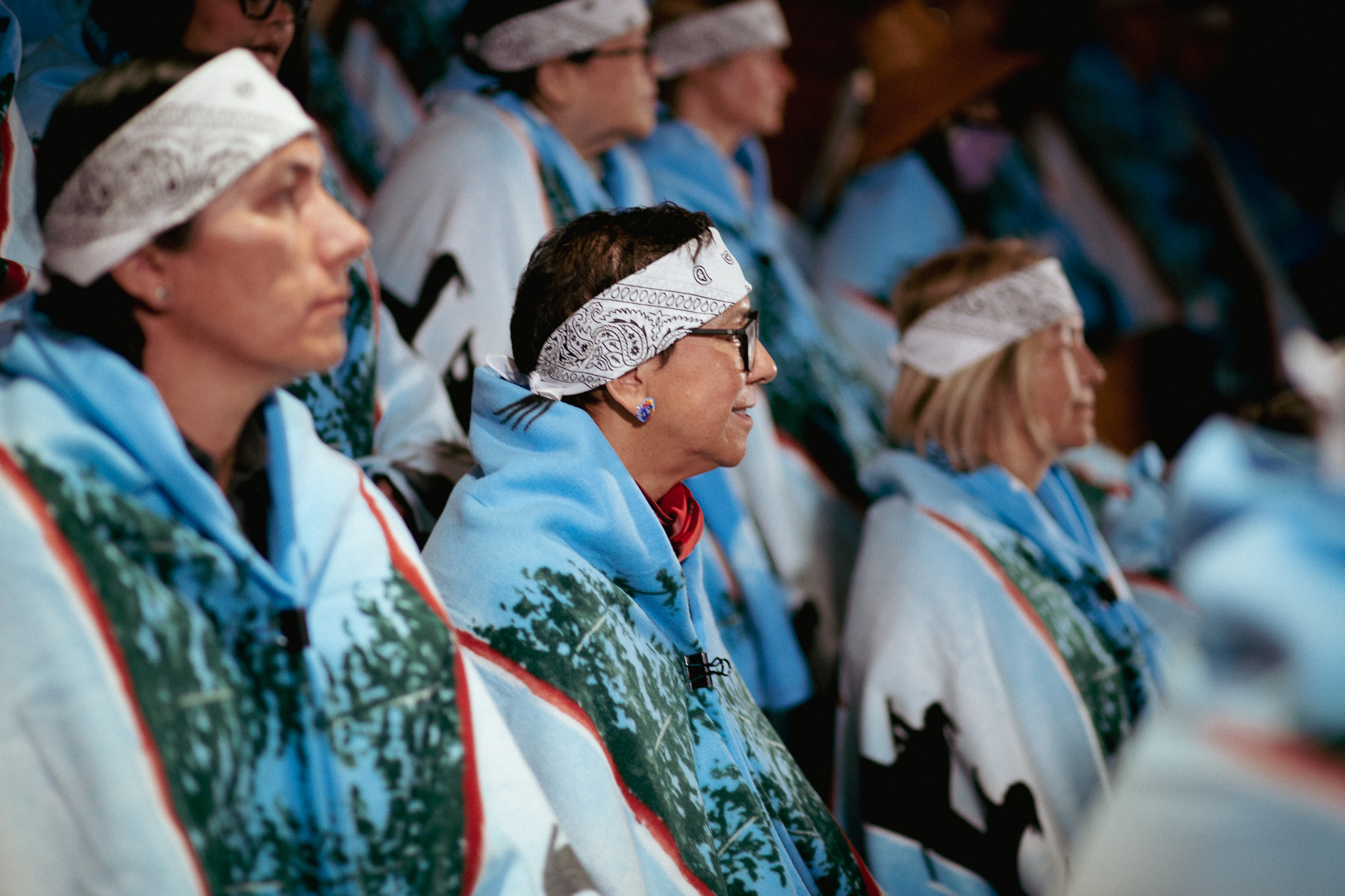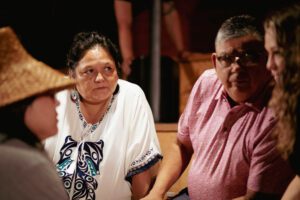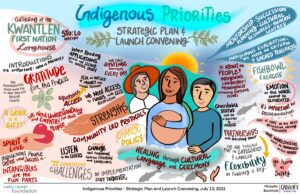
How deep listening and engagement informed Thriving Indigenous Systems Fund
January 31, 2024
Funders can uncover and address the root causes of issues in community by listening and working in partnership with Indigenous communities and leaders.
Last fall, the Indigenous Priorities team launched the Thriving Indigenous Systems Fund (TISF). This grant embedded the findings and learnings from the inaugural Indigenous Priorities Granting Program in 2021.
The purpose of TISF was to be informed by community voices. After spending a year consulting with grantees, past applicants, Indigenous-led systems change experts, community members, and Indigenous leaders, the team had a grant design providing flexible, multi-year grants to land-based Nations and Indigenous-led organizations that serve land-based nations across the territories now known as British Columbia (B.C.)
Grants of up to $100,000 per year over three years were developed for Indigenous-led initiatives focused on healing, land, rights, and culture to create the conditions for systemic transformation. TISF prioritizes initiatives led by the original rights holders across the territories, deepening Vancouver Foundation’s commitment to being in right relations.
The individuals behind the fund
Jeska Slater (Fisher River Cree Nation) is the Director of Indigenous Priorities at Vancouver Foundation and oversees implementing the Indigenous Priorities strategy. Slater developed a community engagement practice based on reciprocity, accountability, transparency, and systems thinking. She says, “Indigenous people have always been systems thinkers. While there is diversity in our cultures, governance systems, practices and protocols, one commonality I see is how our worldviews consider the interconnected nature of our systems and, thus, how we address complex social, political, environmental and economic issues. However, colonial impacts continue to create barriers for our communities to step into this work meaningfully. These barriers create an opportunity for the philanthropic sector to greatly impact our journey to be in the right relations with the Nations we serve.”
As a mother, her work is personally meaningful, as she aims to model Indigenous ways of knowing, learning and being for the next generations. “We are picking up on the good work of our ancestors. We are thinking generations ahead– just as our ancestors did for us.”
Through TISF, funders and partners will forge deeper relationships in communities, emerging from community engagement and Vancouver Foundation’s Indigenous Priorities Advisory Circle (IPAC). Qani Queiroz-Mckay (they & she pronouns) is a 24-year-old Nisga’a, Haíłzaqv trans woman who graduated from university in 2022 and stepped into their role as Coordinator of Indigenous Priorities. Slater highlights how Qani’s lived experience and worldview have been an incredible gift to the team and the shift in focus. Qani shares a defining moment in their studies when, in a previous conversation with Khelsilem, Squamish chairperson (chief), they explained, “Systems change requires deep listening”. This perspective on systems change has remained with Qani in how they engage and support those around her.

What we learned through community engagement
One of the key learnings from community engagement was that “the most critical way we can support Indigenous-led work is to honour the self-determination of the communities we serve, allowing Nations and organizations to define their own version of success and support their work in diverse ways” through multi-year, flexible funding and investing in capacity building.
Along with the data from the Indigenous Priorities Granting Program in 2021 and consulting the IPAC and other Indigenous systems change experts, the team worked on “expressing the wisdom from community to inform the spirit of the grant,” explains Slater. Defining the eligibility requirements to focus on land-based Nations and the organizations that serve them was a key learning in their research.
The reporting requirements for TISF highlighted that “Indigenous communities’ leaders are the ones that should identify what success looks like for them, [using] their traditional practices and protocols to inform markers of success and how they celebrate their success.”

Throughout the design and implementation of TISF, the Indigenous Priorities team embedded trust and reciprocity. “We want to reframe traditional reporting requirements as a chance to deepen relationships with community in a trust-based way. We want to understand what data will be helpful for the community or organizations to gather to advance their work and base our reporting framework on that.”
Other insights from previous funding included a need to strengthen the support provided to the advisory circle and preserve “spaciousness– for Nations to communicate how they are standing up their inherent rights and actively advancing their self-determination,” says Slater.
Creating conditions for systemic transformation
Vancouver Foundation’s mandate includes all of the territories in what is known as B.C., of which 95% were never ceded legally. In that context, repair work and reciprocity create a strong sense of responsibility “to get it right. We wanted to consider what data we are asking for, and how we might steward that data to advocate for systemic change,” says Slater.
TISF covers many potential initiatives and projects in their four main focus areas: healing, land, rights, and culture to be inclusive of the priorities of each Nation. Some projects could be revitalizing culturally specific Indigenous governance systems or implementing Indigenous-led, decolonial practices. The team is completing the adjudication of the grant applications and know there will be key learnings and themes to share in the coming months.


